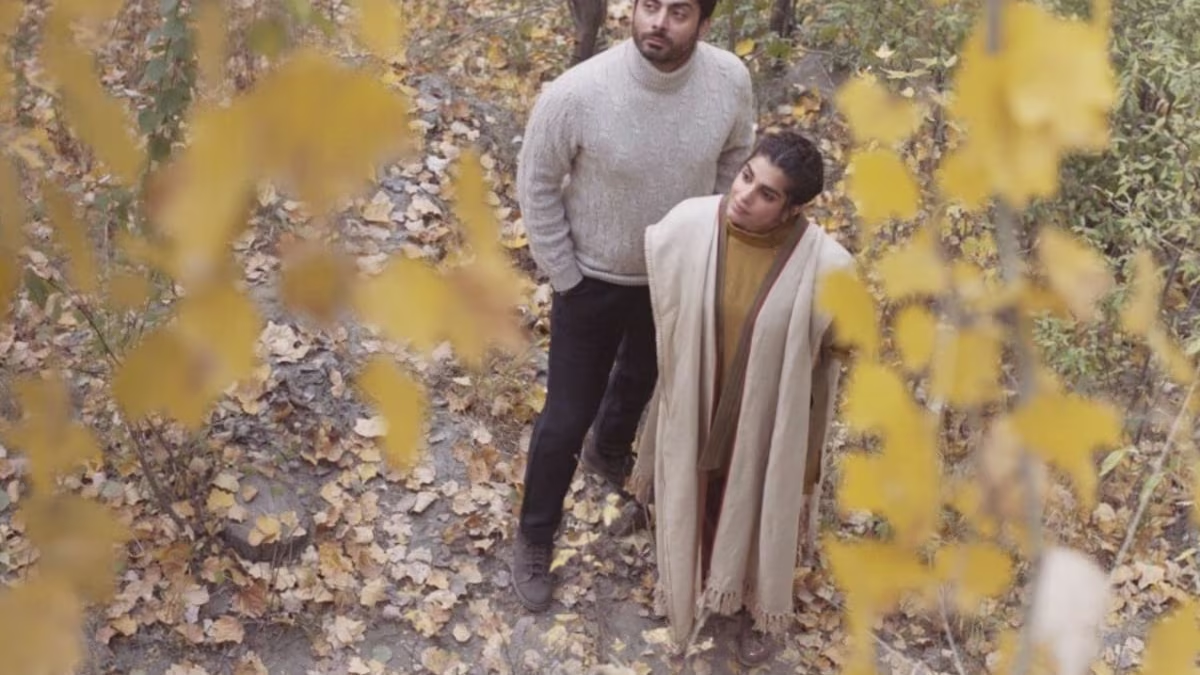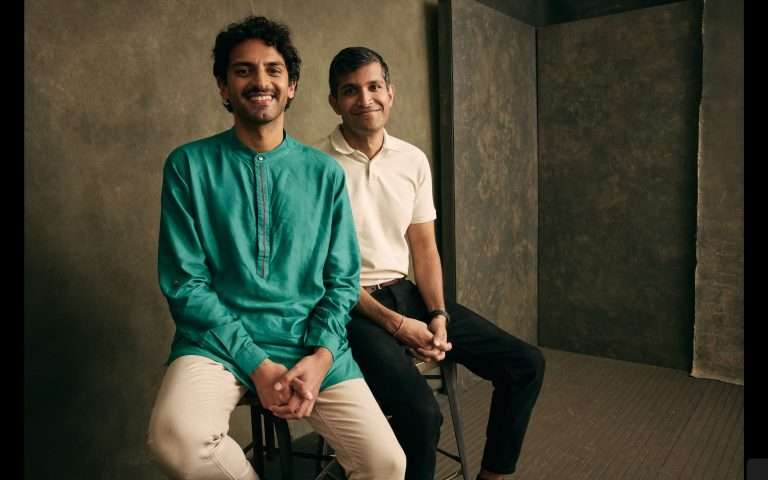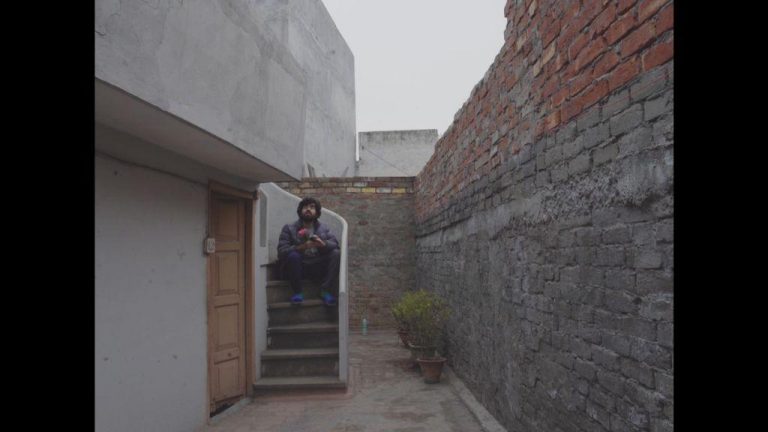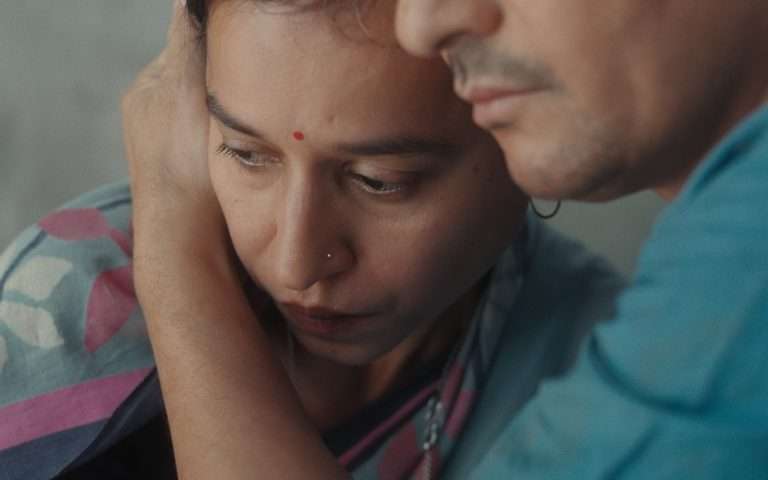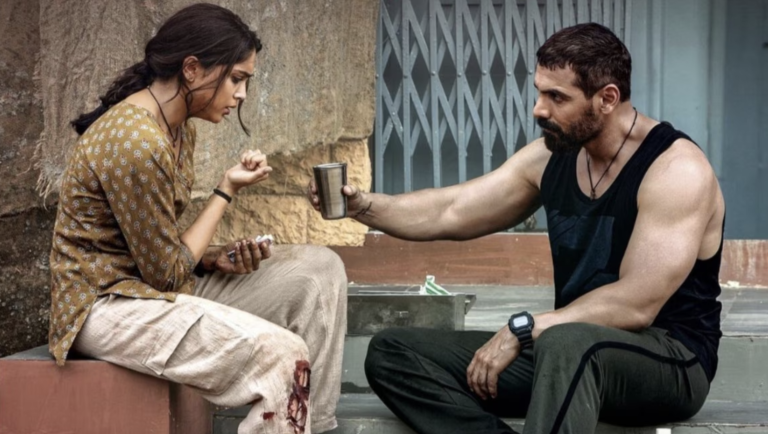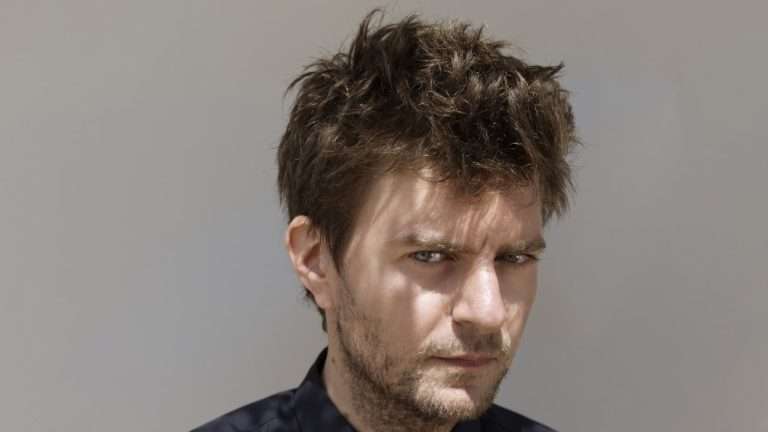Ever since the news of a new television series, “Barzakh,” starring Fawad Khan and Sanam Saeed, hit the screens, their fans, and the pop culture industry haven’t been able to stop gushing over the same. While Khan is returning to the screen after a brief hiatus for his global fanbase, posters of “Barzakh” are out, and they look magical and exhilarating at the same time! Ahead of its premiere on Zee5 Global on the 19th of July, we at HighonFilms had a quick word with writer-director Asim Abbasi about all things “Barzakh” and his filmmaking. Abbasi, popular for his first feature film, “Cake” (2018), which was selected to be Pakistan’s submission for the 91st Academy Awards for Best Foreign Language Film, has also directed some of the most unique and interesting television series around South Asians, including “Churails” (2020) and “Count Abdullah” (2023). Read the interview below:
Ahendrila Goswami: Hello Asim! It is a real pleasure for us at HighonFilms to get you to answer a few of our questions. We are big fans of your work and mostly in awe of the way you handle shape-shifting genres for telling your stories. So, after Cake was released in 2018, you primarily worked with the TV series medium because we had Churails in 2020, Count Abdullah in 2023, and now Barzakh. Do you think the long-form storytelling medium suits your work as a director better, or is the shift away from short films or feature films like an experiment to understand what medium works best for your creative voice?
Asim Abbasi: So…I think it really varies from story to story. I feel there are two parts to this question. The more opportunities have come for me from the series world, and I have primarily worked in that field because that’s the type of work that has come my way; those are the type of opportunities that have come my way. But I do love the long-form series too! I feel like it really allows me to delve deeper into the world-building aspect of things, to really create these ensemble pieces, and I love doing ensembles, so I am sort of exploring the interconnected emotions, the interconnected intimacies between lots of different individuals and why they are the way they are because they are impacted by so many other people.
I think there is some truth to the fact that my kind of storytelling lends itself to a slightly longer form, and hence, I struggled the most when I used to do short films – it is one of the hardest things to do, and kudos to people who are able to do it well but I always struggled to tell the story in 10 – 15 minutes. So, for me, the long-form has been really this space where I can really explore the backstories of characters and really delve deeper into their connections and why they are who they are, the past and the present, and how they marry, so that’s why long-form has been quite exciting for me. But I have been quite keen to go back to film. I am really interested in revisiting that medium and doing something – almost small and intimate – in terms of a feature film.
Ahendrila: We look forward to that! Now, in all your works, including Barzakh, you have tried to observe and represent a South Asian family with all its nuances and belief systems, even if that makes the family appear dysfunctional. How critical do you think the concept of a family, dysfunctional or otherwise, is in shaping the global audience’s perception of South Asian stories?
Asim Abbasi: I feel…I feel in the west, the family dynamics are very different from the way that they are for us. They have nuclear families, and children usually move away at the age of 18; there are retirement homes there, but we have no concept of the same. We need to take care of the elderly. I think the essence of who we are comes from the idea that family comes first, and all its functions and dysfunctions or all its infuriating realities, and that something is very uniquely South Asian or very different from how the West handles families, so it definitely is something that I keep coming back to.
It is also my way of keeping all my stories authentic because family is something that I think of because I live away from them. I live in the UK, and my father’s passed now, but my aging mother lives here in Karachi, so I visit her as many times a year as I can, but there is always that fear that when you leave them, something is going to go wrong.
I think just living in the diaspora, living abroad, and constantly having one foot in your home country and constantly thinking or living with the fear of that loss (not even about the loss so much but the fear of that loss). I think that is so built into so many of us who have migrated or moved for better opportunities to different countries, but what I don’t want is…I don’t want a rose-tinted idea of what a family is.
You need to explore the cracks within a family because I think, inherently, the family leads to a lot of resentment because when you care for someone beyond yourself, constantly, there is a feeling of whether you are giving too much and not receiving back as much. So I think that is something that so many people live with, and it is a question of whether the expectation that the elderly have from us, the youth, is justified. Did we raise you so that you can take care of us, or did we raise you to be free and independent? There are no right or wrong answers to this, but the exploration of that is something that I am quite interested in.
Ahendrila: It’s no secret that there are ghosts in Barzakh. In fact, Count Abdullah also delved into the vampire tropes. How do you think the supernatural element in your works helps elevate the realism of the stories you seek to tell?
Asim Abbasi: Count Abdullah, I have to say, is a show that was not written by me. It was written by the great writer Kaamil Shah, and I was just manifesting his vision. But I also think it was a great way for Kaamil to be able to explore themes that otherwise feel a bit too…dark or heavy, like themes around racism, skin color, and what it means to be brown in a white world, and how the people of the diaspora are different or how, even within the diaspora, the Pakistanis are different from the Sikhs or the Hindus, but doing it in a fun way. That’s what Count Abdullah did.
I think with Barzakh, the idea of death is unknown, and what is unknown is unreal. No one has gone to the other side and come back and reported back to us, right? So, there is no way of knowing what happens. There, the fantasy element immediately comes in when you try and put a visual to that world, when you try and say that ghosts wear pink and that’s what I am going to do because that’s what I believe is the color of a ghost, or I am going to say that the ghost carries the grief that they have seen in this world on their backs and that is what the rocks are going to be.
Those are all manifestations of what I believe ‘that’ world may possibly look like. I don’t have illusions that I know what it looks like, but that’s my creative liberty as a writer-director. But the themes around ghosts are very real! So, for me, exploring the supernatural that way or exploring magical realism that way really allows me to circle back and say, ‘Okay, what happens when a loved one comes back?’ because my emotions if I see a loved one…if my dad came back from the dead right now, what I’m going to feel is going to be very real – there’s nothing fantastic or supernatural about that.
So, I think there’s a great link between the unreal and the real, and the boundaries between them are really, really porous. It is the same way as saying that there’s no one truth, and I think that applies to this blending of genres as well, so I think what is real becomes poignantly more real when you see it through the prism of the unreal.
Ahendrila: In several of your interviews, you have mentioned how storytelling is so important to your core self. Interestingly, in Barzakh, Sanam Saeed’s character is called Scheherezade. Is the character a way for you to integrate your ideas of storytelling into the show?
Asim Abbasi: Yeah, it is, and the reason for her – I am taking it a step further here – that she is kind of the storyteller because a lot of voiceovers in the show are from her perspective, but she is also the one who brings everyone’s stories together. She is the glue, the center point, that threads all the different, disparate elements we explore in these six episodes and binds them together. She becomes the core center, and, for me, Scheherezade from the books was also the same character whom all the stories were centered around because she was the narrator of them as well.
Ahendrila: Do you think the fictional setting of Barzakh gives you the freedom, as a director and writer, to delve into socio-economic and political realities plaguing Pakistani society, and why?
Asim Abbasi: The fictional setting does help a lot! I don’t know if I am exploring so much of the socio-economic (I mean that I think the audience will judge better) realities, but I am exploring the ideas around belief systems, like what happens when we believe in something and how much we believe in it and whether that is the truth, or how our belief marries with the reality – tying into what we were talking about earlier with the real and the unreal. So, I think the fictional setting really allows me to explore a new belief system, a world where shamans, prophecies, etc., exist without tying it down to a specific geography.
Also, for me, there are so many myths…and a lot of ideas I explore come from myths. When I started researching myths, the myths around paganism, Hinduism, Zoroastrianism, and Persian literature revealed so much interconnectedness. For example, if we talk about the drink of the Gods, in Hindu literature, it is soma, and in Persian literature, it is hauma; the idea around the spring festival and the autumn festival around the harvest moon in paganism and Persian is all so interconnected that I felt I needed a space where all these cultural hybrids co-exist. So, I didn’t want this to be like, ‘Is this Iran or Persia, or old India, or Pakistan or something?’ I wanted to elevate the mythology of it above all those existing geographies.
Ahendrila: Everyone on the web has been very excited and intrigued to watch their favorite stars, Fawad Khan and Sanam Saeed, back on the screen together after their successful pairing in the show Zindagi Gulzar Hai. Do you wonder if the frenzy around their casting may make the audience sideline the story that Barzakh is all about?
Asim Abbasi: I think once the show comes out, it will stand on its own feet. I think once the audiences get into the roles of the characters these actors are playing, that is what they are going to connect with, hopefully (laughs), if I have done my job well. At this point, it’s all above that because, at this point, there are just talks, news, and press releases. I am actually interested to see Sanam and Fawad in such different roles, and it’s my hope (my real hope) that the audience is able to champion these completely different roles for their favorite actors in completely different settings than they have experienced before.
I think they say one doesn’t want unnecessary noise, but the audience right now is excited to watch both of them. They are both in the show, and they have both done a fantastic job, so I am also excited for audiences to see them. But when you come in, you will see a lot more, and hopefully, then you will be able to see the vastness of the entire story rather than fixate on a couple of characters.
Ahendrila: Thank you so much for your time and patience. We wish you and the entire cast and crew of Barzakh the very best for its upcoming release on Zee5 Global on July 19th. Our last question would be: If you were not a director and writer, which profession do you think would suit you the best, and why?
Asim Abbasi: Oh dear! (laughs) Well, I was a banker for ten years before I became a filmmaker, and I thought I needed to do the right thing, so I studied economics and went to LSE and all that stuff, and then realized that was not for me. So, I would certainly not be a banker no matter how much money there is in it for me. But…I would love to be a psychologist or a therapist, and the most interesting thing that I do in my storytelling when I start directing and working with my actors is that I try to understand their vulnerability and fragility.
I think the most exciting thing for me on the set is being able to work with actors, and I think working with other individuals and trying to provide some kind of catharsis to them and being a good listener for them – a lot of our job as directors when working with actors is about listening – is kind of the same as being a good psychologist. That…is something I would’ve totally loved doing!

